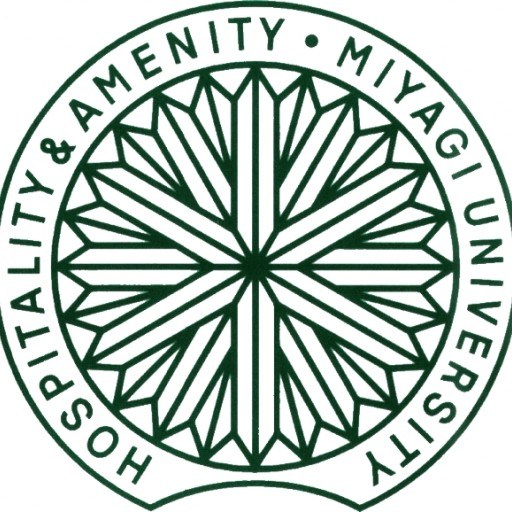Photos of university / #university_of_tsukuba
The International Social Sciences program at the University of Tsukuba offers students an interdisciplinary and comprehensive education designed to foster a deep understanding of social phenomena from a global perspective. This program aims to develop professionals who are capable of addressing complex social issues through critical thinking, research skills, and cross-cultural communication. Students will explore various fields within social sciences, including sociology, political science, international relations, cultural studies, economics, and public policy, enabling them to gain a broad and versatile academic foundation. The curriculum emphasizes both theoretical frameworks and practical applications, encouraging students to engage in research projects, fieldwork, and internships that connect academic knowledge with real-world challenges. The program is tailored for those eager to contribute to society’s advancement by promoting sustainable development, social justice, and intercultural understanding. With a faculty composed of experienced scholars and practitioners from diverse backgrounds, students receive mentorship and guidance geared toward academic excellence and professional readiness. The University of Tsukuba's international environment fosters multilingualism, multicultural interaction, and global networking opportunities, preparing graduates to work effectively in international organizations, governmental agencies, NGOs, or private sectors. Flexible course options and elective subjects allow students to customize their educational experience according to their career aspirations and interests. Moreover, the program encourages active participation in seminars, international conferences, and collaborative research initiatives, providing valuable exposure to contemporary social science issues worldwide. Graduates of the International Social Sciences program are equipped with analytical skills, cultural awareness, and a solid ethical grounding necessary for addressing societal challenges and making impactful contributions across various fields. Whether pursuing further academic study or entering the workforce directly, students will emerge as competent, culturally sensitive professionals ready to thrive in an interconnected world.
Foundation Subjects for Major (Required Courses)
- International Social Studies I
- International Social Studies II
Foundation Subjects for Major (Core Electives)
- Academic Writing for Social Sciences I
- Academic Writing for Social Sciences II
- Japanese Learning Support I
- Japanese Learning Support II
- Japanese Learning Support III
- Fundamentals of Japanese Studies
- Contemporary World Politics
- Introduction to Programming
- Readings of Japanese Studies
- Social Issues in Contemporary Japan
- International Economics
- Introduction into General Management
- Intro-Intermediate Macroeconomics
- Media Politics
- Law and Society in Japan
- Academic Discussion Seminar I
- Academic Discussion Seminar II
- Introduction to Japanese Public Law
- Japanese Legal Proceedings
- Quantitative Methods for Social Sciences
- Principles of Economics
- Perspectives on Managerial Issues in Global Business
- Japan and the World
- Japanese Foreign Policy
- Public Policy
- History of International Relations
- International Politics
- Political Philosophy
- Special Topics in Modern History
- Comparative Public Administration
- Global Environmental Politics
- Global Political Economy I
- Global Political Economy II
- Japanese Economy
- Introductory Econometrics
- Economic History
- Comparative Study on Socio-Economic System
- Development Economics
- International Trade
- Introductory Statistics
- International Law
- International Economic Law
- International Labour Law
- International Human Rights Law
- Transnational Social Policy
- Comparative Society
- Social Development
- Culture and Society of China and Taiwan
- Globalization and Development
- European Legal History
- Linguistic Anthropology
- Intercultural Communication
- International Education
- Personal Computer and Japanese Word Processing
- Outline of Japanese Education
- Population and History in Japanese Perspective
- Population and Development
- Academic Debate for Social Sciences
- Global Society and Criminology
- Studies in Modern Asia I
- Studies in Modern Asia II
- Media and Gender
- History of Economic Thought
- Human Resource Management
- International Management
- Mathematical Economics
- Health Economics
- Contemporary Issues in Developing Countries
- International Negotiation
- G30 Special Lecture V
- G30 Special Lecture VIII
Major Subjects (Required Courses)
- Seminar A
- Seminar B
- Seminar C
- Seminar D
- Seminar E
- Seminar F
- Graduation Thesis
Major Subjects (Free-choice Electives)
- Internship I
- Internship II
- Internship Abroad
- Nationality other than Japanese
- Completion of 12 years of school education outside Japan
- Submission of TOEFL or IELTS score (non-native speakers only)
The International Social Sciences program at the University of Tsukuba offers a variety of financing options to support students throughout their studies. Undergraduate students may be eligible for national and university-specific scholarships, including the Japan Student Services Organization (JASSO) scholarship, which provides financial assistance based on academic achievement and financial need. Additionally, the university offers its own scholarship programs, such as the Tsukuba Scholarship for International Students, which aims to reduce financial barriers for deserving students. These scholarships often cover partial tuition fees or provide living stipends and are awarded through a competitive selection process that considers academic performance, motivation, and need.
Graduate students enrolled in the program can access further financial aid sources, including research grants, assistantships, and fellowships. Teaching or research assistant positions are available and provide a stipend or tuition waiver in exchange for part-time academic responsibilities. Such positions not only assist students financially but also offer valuable academic and professional experience. Moreover, Japanese government programs such as the Monbukagakusho Scholarship, aimed at international students, may be available for outstanding international applicants, covering tuition, living expenses, and travel costs.
Students are encouraged to seek external funding opportunities through international organizations, NGOs, or their home country governments, which often provide scholarships or grants for students pursuing social sciences. The university also provides support services to assist students with the application process for various financial aid programs. It is recommended that prospective students contact the university’s International Student Office or the Financial Aid office for personalized advice and the most current information on available funding options. Overall, the University of Tsukuba is committed to making education accessible to talented students from around the world by providing a comprehensive range of financial support options tailored to diverse needs and circumstances.
The International Social Sciences program at the University of Tsukuba is designed to provide students with a comprehensive understanding of global social issues through a multidisciplinary approach. The program emphasizes critical thinking, cultural awareness, and analytical skills necessary to address complex societal challenges. Students have opportunities to study a variety of disciplines including sociology, political science, economics, and international relations, often engaging in cross-cultural exchanges and collaborative projects with international students and institutions. The curriculum incorporates both theoretical and practical perspectives, encouraging students to apply their knowledge to real-world problems. Courses are delivered in English, facilitating international communication and collaboration. The program aims to cultivate professionals capable of operating effectively in international environments, contributing to policy making, research, and development in social sciences. Graduates are prepared for careers in government, NGOs, international organizations, or pursue further academic research. The university's faculty are renowned experts who provide personalized mentorship and support innovative research initiatives. The campus facilities include modern lecture halls, research centers, and language laboratories, fostering an environment conducive to academic excellence and intercultural exchange. Students also benefit from internships and fieldwork opportunities that enhance their practical skills and global perspectives. The program encourages students to participate in international conferences and academic networks, broadening their global outlook. Overall, the International Social Sciences program at Tsukuba University aims to produce well-rounded, globally minded graduates equipped to tackle societal issues in a rapidly changing world, fostering academic achievement, intercultural understanding, and professional development.





